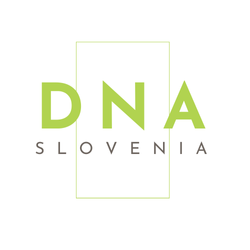Unlocking the Digital Nomad Economy: Insights From Europe’s Leading Destinations
As the world embraces remote work, digital nomads—professionals who work while traveling—have blossomed into a powerful and fast-growing economic force. For Slovenia and its partners, the burgeoning digital nomad community presents a unique opportunity to boost the local economy through strategic investment and supportive policies. This article explores research-backed data on the digital nomad market, economic impacts, and successful case studies in Europe, with a spotlight on Madeira’s thriving program and lessons for Slovenia.

The Growing Digital Nomad Market: Who Are They and Why It Matters
The global digital nomad population has surged dramatically, reaching tens of millions worldwide. According to the 2024 MBO Partners Digital Nomads Trends Report, 18.1 million Americans now identify as digital nomads, a 147% increase over five years. Almost half report household incomes above $75,000, highlighting the segment’s affluent and professional nature. The market is similarly robust in Europe, where digital nomads predominantly work in IT, marketing, and creative services, leveraging high connectivity and flexible lifestyles. Projections show the digital nomad services market—covering accommodation, coworking spaces, and visas—is expected to grow from USD 35 billion in 2024 to over USD 100 billion by 2032 at a compound annual growth rate of 20% [MBO Partners 2024; Future Data Stats 2024].

Economic Impact: The Digital Nomad Ripple Effect
Digital nomads inject significant foreign income into local economies by frequently renting property, dining locally, and utilizing transportation and hospitality services. In destinations like Lisbon and Bali, this influx has transformed entire sectors, with many locals shifting from agriculture to tourism-driven economic activities. However, challenges such as housing affordability require balanced planning to ensure sustainable growth. Studies show digital nomads spend on average €1,800 monthly on rent and living expenses—money that ripples through local businesses and communities [INOMICS; IJETER Journal on Bali].
Madeira’s Digital Nomad Program: A Resounding Success
Madeira’s innovative “Digital Nomads Madeira Islands” project attracted nearly 15,000 digital nomads from 137 countries during 2020–2022, about 4% of the island’s population. These nomads inject approximately €1.5 million monthly into the local economy through accommodation, dining, transport, and other services. Their presence helped increase rental prices by 172% and boosted bookings by 36% during the program’s growth phase. This success during the pandemic years underlines the viability of digital nomads as a stable, long-term economic segment [ResearchGate Madeira Study].

What Can Slovenia Learn?
Slovenia is poised to join the growing list of European countries embracing the digital nomad revolution. With a new digital nomad visa launching November 21, 2025, Slovenia aims to attract remote workers by offering an affordable cost of living, excellent internet connectivity, and vibrant cities like Ljubljana with expanding coworking spaces. To qualify, applicants must earn twice Slovenia’s average net salary—around €3,297 monthly—ensuring economic self-sufficiency and spending power. Early digital trends in Slovenia show over 1.9 million internet users (91.5% penetration) and a population digitally ready to support remote work tourism [DataReportal Slovenia 2025; Forbes 2025].
Investing in digital nomad infrastructure such as coworking hubs, housing policies, and community events could unlock similar benefits to those seen in Madeira and other European hotspots.
The digital nomad economy presents a substantial, resilient growth area for Slovenia’s tourism and tech ecosystems, promising diversified revenue streams and year-round economic activity.
Sources
MBO Partners, 2024 Digital Nomads Trends Report
Future Data Stats, Digital Nomad Services Market Size & Growth
INOMICS, The Rise of Digital Nomadism and Its Economic Implications
IJETER Journal, Impact of Digital Nomadic on Local Community in Bali
ResearchGate, Digital Nomads Madeira Islands Case Study
DataReportal, Digital 2025 Slovenia Report
Forbes, Slovenia Launching Digital Nomad Visa, 2025
